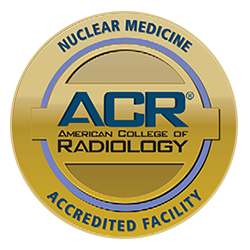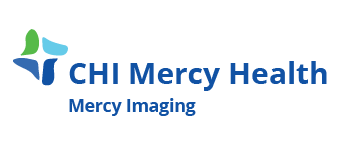Nuclear Medicine
 Nuclear Medicine exams use radioactive substances to see organs and their functions inside your body.
Nuclear Medicine exams use radioactive substances to see organs and their functions inside your body.
Nuclear Medicine scans involve a special camera that detects energy coming from the radioactive substance, called a tracer. Before the test, you receive the tracer, often by an injection. Although tracers are radioactive, the dosage is small.
During most nuclear scanning tests, you lie still on a scanning table while the camera makes images. There are two steps to the scanning process. First you will come to Mercy Imaging and receive an injection. This will take about 15 minutes. Then you will leave for up to two hours before returning for your scan, which will take between 20 and 45 minutes.
Nuclear scans can help doctors diagnose many conditions, including cancers, injuries and infections. They can also show how organs like your heart and lungs are working.
Mercy Medical Center is committed to providing quality nuclear exams. The technologists that perform these exams have advanced training in Nuclear Medicine protocols and are nationally registered with the Nuclear Medicine Technologist Certification Board (NMTCB).
A certified Nuclear Medicine Technologist will be performing your exam.
This is different from the Radiologist who will interpret the images.
Listed below are some of the types of Nuclear Medicine we perform.
Please visit Imaging Services Catalog for more information regarding preps and what to expect.
- Myocardial Perfusion (Cardiolyte, heart study)
- Bone Scan
- Gallbladder
- Sentinel Node
- Gastric Emptying
- VQ Lung Scan
- SPECT CT

